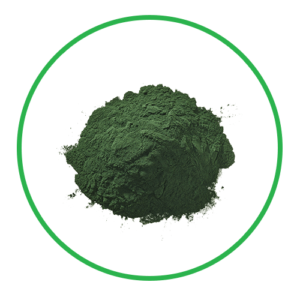Disclaimer: The information provided in this discussion is for general informational and educational purposes only. It is not intended as medical or professional advice. Only a qualified health professional can determine what practices are suitable for your individual needs and abilities.
Spirulina

With its deep blue-green color and alkalizing properties, spirulina is surging in popularity as a so-called superfood supplement. This type of cyanobacteria (aka blue-green algae) has an impressive nutritional profile, leading many health experts to recommend it. Could spirulina give your diet a boost? Let’s explore why this aquatic algae is considered a nutritional powerhouse.
What Is Spirulina?
Spirulina is a spiral-shaped microorganism that grows naturally in warm, freshwater lakes. Its deep green pigment comes from chlorophyll as well as its rich phytochemical content. Spirulina has been harvested and consumed by cultures around the world for centuries, most notably in Mexico, Africa, and Asia.
Today, spirulina is sold primarily in powder or tablet form as a dietary supplement. It can also be found as an ingredient in some protein powders, nutrition bars, and green drinks.
Nutrition Profile of Spirulina
Ounce for ounce, spirulina packs a nutritional punch. Here are some of its top nutrients and potential benefits:
- Protein: Spirulina contains over 60% complete protein by weight. The protein is highly bioavailable, meaning the body can easily absorb and utilize it. Protein is vital for building muscle mass and supporting metabolic function.
- B Vitamins: Spirulina is a great source of B vitamins including vitamins B1, B2, and B3 to support energy metabolism and B6, B9, and B12 for red blood cell production and neurological health.
- Beta Carotene: This antioxidant is converted to active vitamin A in the body to promote healthy immunity, eyes, skin, hair, and mucous membranes.
- Iron: Spirulina delivers bioavailable iron to prevent deficiencies that can cause anemia and fatigue. This is especially important for those who don’t eat meat.
- Gamma Linolenic Acid: This anti-inflammatory fatty acid may improve inflammatory conditions such as arthritis, allergies, and asthma.
Potential Health Benefits of Spirulina
While more research is needed, initial studies indicate spirulina may offer benefits including:
- Lowering LDL and total cholesterol levels
- Reducing blood pressure
- Improving blood sugar control and insulin sensitivity
- Providing antioxidant protection from cell damage
- Reducing inflammation
- Enhancing endurance and reducing muscle fatigue during exercise
Current research is also looking at spirulina’s potential to support the immune system, reduce allergy symptoms, and protect the brain, liver, and more.
How to Add Spirulina to Your Diet
The standard dosage has not been established, but many nutrition experts recommend 1-3 grams of spirulina per day. Here are some easy ways to consume spirulina:
- Add 1 tsp spirulina powder to juices, smoothies, oatmeal, yogurt, soup or hummus
- Bake it into energy bites, protein bars or muffins
- Mix it into nut milk for a colorful latte
- Look for it in supplements and greens powders
- Follow package directions carefully and watch for possible side effects like digestive upset
Be sure to purchase high-quality spirulina made by a reputable manufacturer. With its concentration of protein, antioxidants, and other nutrients, spirulina just may be one of nature’s most fantastic superfoods. Give it a try and let us know about your experience!
Hey there! We hope you love our fitness programs and the products we recommend. Just so you know, Symku Blog is reader-supported. When you buy through links on our site, we may earn an affiliate commission at no extra cost to you. It helps us keep the lights on. Thanks.

